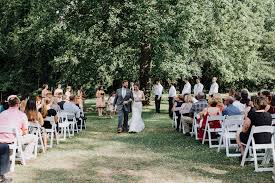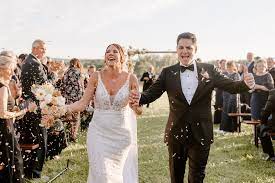Embracing the Power of Ceremony: Honoring Tradition and Connection

The Significance of Ceremonies in Human Culture
Ceremonies play a vital role in human culture, serving as important rituals that mark significant events and transitions in our lives. From birth to death, ceremonies are woven into the fabric of society, providing structure, meaning, and a sense of belonging.
One of the primary functions of ceremonies is to bring people together. Whether it’s a wedding ceremony uniting two individuals in marriage or a graduation ceremony celebrating academic achievements, these events serve as communal gatherings that strengthen social bonds and foster connections among individuals.
Ceremonies also serve to acknowledge and honor important milestones in life. Coming-of-age ceremonies mark the transition from childhood to adulthood, while religious ceremonies provide spiritual guidance and support during times of joy or sorrow. By recognizing these pivotal moments through ceremonial practices, we imbue them with significance and meaning.
Furthermore, ceremonies help to preserve cultural traditions and heritage. Through rituals passed down through generations, we maintain a connection to our ancestors and history. Ceremonial practices such as traditional dances, songs, and prayers serve as living expressions of our cultural identity.
In conclusion, ceremonies hold a special place in human culture, serving as powerful tools for fostering community, celebrating milestones, and preserving traditions. As we continue to engage in these time-honored rituals, we reaffirm our shared humanity and strengthen the bonds that unite us.
Understanding Ceremonies: Importance, Cultural Differences, Types, Planning, History, Modern Adaptations, and Religious Roles
- What is the importance of ceremonies in society?
- How do ceremonies differ across cultures?
- What are some common types of ceremonies?
- How can I plan a memorable ceremony?
- What is the history behind certain ceremonial traditions?
- Are there any modern adaptations of traditional ceremonies?
- What role do ceremonies play in religious practices?
What is the importance of ceremonies in society?
Ceremonies hold great importance in society as they serve as essential rituals that help to bind individuals together, mark significant milestones, and preserve cultural traditions. These structured events provide a sense of unity and belonging by bringing people together to celebrate or commemorate shared experiences. Ceremonies play a crucial role in acknowledging important transitions in life, such as weddings, graduations, and religious rites, giving these moments a deeper sense of meaning and significance. Additionally, ceremonies serve as a way to pass down cultural heritage from one generation to the next, ensuring that traditions and customs are preserved and honored over time. In essence, ceremonies play a vital role in shaping societal values, fostering connections among individuals, and upholding the rich tapestry of human culture.
How do ceremonies differ across cultures?
Ceremonies vary greatly across cultures, reflecting the diverse beliefs, traditions, and values of different societies. The differences in ceremonies can be seen in various aspects such as the purpose, rituals, symbolism, and participants involved. For example, a wedding ceremony in one culture may involve elaborate rituals and ceremonies that symbolize the union of two families, while in another culture, it may be a more intimate affair focused on the couple’s love and commitment. Additionally, ceremonies can differ in terms of attire, music, food, and decorations used to enhance the significance of the event. These variations highlight the richness and complexity of human culture and demonstrate how ceremonies serve as important expressions of identity and community values across the globe.
What are some common types of ceremonies?
There are various common types of ceremonies that serve different purposes and mark significant events in human life. Some of the most prevalent types include wedding ceremonies, which celebrate the union of two individuals in marriage and symbolize their commitment to each other. Graduation ceremonies mark the completion of academic achievements and signify a transition to a new phase in one’s life. Religious ceremonies, such as baptisms, bar mitzvahs, or funerals, hold spiritual significance and provide guidance and support during important milestones. Additionally, cultural ceremonies like coming-of-age rituals or traditional festivals help preserve heritage and foster a sense of community among participants. These diverse types of ceremonies play a crucial role in society by honoring traditions, strengthening social bonds, and providing meaning to significant life events.
How can I plan a memorable ceremony?
Planning a memorable ceremony involves careful consideration of key elements to ensure a meaningful and impactful event. Start by establishing a clear vision and purpose for the ceremony, outlining your goals and desired outcomes. Select a suitable venue that aligns with the tone and theme of the event, paying attention to details such as ambiance, seating arrangements, and accessibility. Personalize the ceremony by incorporating meaningful rituals, readings, or music that reflect the significance of the occasion. Engage with participants and guests to create a sense of community and connection, fostering an inclusive and welcoming atmosphere. Finally, document the ceremony through photography or videography to preserve memories for years to come. By focusing on these aspects, you can plan a ceremony that leaves a lasting impression on all who attend.
What is the history behind certain ceremonial traditions?
The history behind certain ceremonial traditions is a fascinating exploration of how cultures have evolved and preserved their customs over time. These traditions often have deep roots in the past, with origins that can be traced back to ancient rituals and beliefs. By delving into the history of specific ceremonial traditions, we gain insight into the values, beliefs, and practices that have shaped a community or society. Understanding the historical context behind these rituals allows us to appreciate the significance they hold and the ways in which they continue to enrich our cultural heritage today.
Are there any modern adaptations of traditional ceremonies?
In response to the frequently asked question about modern adaptations of traditional ceremonies, it is important to note that cultural practices are dynamic and evolve over time. Many traditional ceremonies have indeed undergone modern adaptations to reflect contemporary values, beliefs, and lifestyles. These adaptations may involve incorporating new technologies, changing ceremonial attire, updating rituals to be more inclusive, or infusing elements of creativity and innovation. While some purists may argue for the preservation of tradition in its original form, others see value in adapting ceremonies to resonate with current generations and ensure their relevance and continuity in a rapidly changing world.
What role do ceremonies play in religious practices?
Ceremonies play a crucial role in religious practices by serving as sacred rituals that connect believers to their faith, community, and spiritual beliefs. In religious ceremonies, participants often engage in symbolic actions, prayers, and rituals that serve to deepen their connection to the divine and express their devotion. These ceremonies help foster a sense of unity among believers, provide a framework for worship and reflection, and mark important milestones in the religious calendar. Through ceremonies, individuals can experience a profound sense of reverence, belonging, and spiritual growth within the context of their faith tradition.
